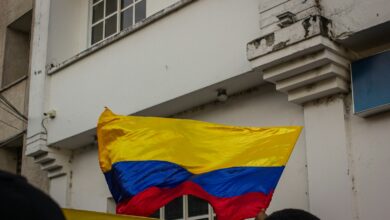Mexican Wrestling Event Highlights National Food Waste Crisis Awareness

A wrestling event in Mexico aims to raise awareness about the country’s food insecurity crisis, where 44 million people face hunger while over 30 million tons of food are wasted annually. Organizers call for civil society’s support to combat this issue
In an innovative effort to address Mexico’s severe food insecurity, where 44 million people live without reliable access to adequate food, Mexican organizations have launched a wrestling event to highlight the issue. Announced this Wednesday, the event underscores the stark contrast between widespread hunger and the country’s massive annual food waste of over 30 million tons.
Mariana Jiménez, director of the Red de Bancos de Alimentos de México, emphasized the crucial role of civil society in tackling this crisis during a press conference. “We need the support of civil society,” she stated, “because, through these sporting events, people can contribute to reducing the number of those who suffer from hunger.”
In this context, the Confederation of Associations of Customs Agents of the Mexican Republic (CARE), in collaboration with the Red de Bancos de Alimentos and the World Council of Lucha Libre (CMLL), presented the “Lucha contra el Hambre” event. This initiative aims to raise awareness about hunger in Mexico and the importance of reducing food waste.
Anticipating a Bright Future: The Impact of the Wrestling Event scheduled for September 18 at Arena Mexico, the event will feature famous wrestlers such as Atlantis Jr and Zeuxis, who have expressed their enthusiasm for supporting the cause. With an audience of at least 11,000 spectators, this event is not just a one-time affair. It is the first in a series of events that could potentially raise significant funds and awareness about food insecurity in Mexico, offering a ray of hope in an otherwise challenging situation.
The Staggering Scale of Food Waste
Mariana Jiménez highlighted a staggering statistic: annually, Mexico wastes 30 million tons of “perfectly usable” food fit for human consumption. “This equates to throwing away two trailer loads of perfectly safe and consumable food every minute,” she lamented.
Empowering the Public: The Role of Awareness in Food Recovery Jiménez pointed out that food banks in Mexico currently rescue only 0.8% of the country’s wasted food. She stressed the importance of raising public awareness to increase food recovery efforts and feed at least 500,000 Mexican children. This is not just a call for action, but a call for responsibility. ‘We want to guarantee and contribute to the future of these generations because we know that everything children miss in their nutrition today compromises their development and potential,’ she noted.
Alejandro Ramos, former president of CAAAREM, added that 40% of the food produced in Mexico is destroyed. He also highlighted the issue of food held up at customs, which, needing a clear destination, often gets wasted. “Imagine if we could recover parts of this food and channel it to children,” he proposed.
Policy Solutions and Government Cooperation
Ramos explained that CAAAREM is currently discussing establishing a specific tariff position with the Ministries of Economy and Agriculture. This would ensure that if any food rejected by the United States is still in good condition, it can be redirected back to Mexico’s food banks.
“We are in the process of governmental transition,” Ramos said, “and we will resume these conversations with the heads of Customs, the Ministry of Economy, and Agriculture because it involves all three sectors to make this possible.”
A coordinated approach between government bodies and civil organizations is not just important, it’s crucial. Creating an efficient system for food recovery and distribution requires the combined efforts of all stakeholders. Ensuring that edible food does not go to waste but reaches those in need can significantly alleviate hunger and improve nutrition among vulnerable populations.
Engaging the Public and Raising Awareness
The wrestling event is an innovative platform to engage the public and draw attention to food waste and insecurity. By combining entertainment with a socially responsible cause, the organizers aim to mobilize support and foster a culture of sustainability and solidarity.
Mariana Jiménez and Alejandro Ramos’s remarks underscore the pivotal role of societal participation in addressing food insecurity. Public events like ‘Lucha contra el Hambre’ are not just about raising awareness, but also about encouraging community involvement in food recovery efforts. Every individual’s contribution matters in this collective fight against hunger.
The initiative to use a wrestling event to highlight and combat food waste and hunger in Mexico is a testament to the creativity and commitment of the involved organizations. It underscores the urgent need for collaborative efforts to address food insecurity and ensure that no food goes to waste while millions suffer from hunger.
By fostering a sense of community responsibility and leveraging the popularity of cultural events, Mexico can make significant strides in reducing food waste and feeding its hungry population. The cooperation between civil society, government agencies, and private sector entities will be crucial in creating sustainable solutions for food security.
Also read: Rising Cyber Harassment in Mexico and Its Implications for Privacy
The success of “Lucha contra el Hambre” could pave the way for more innovative approaches to social issues. It demonstrates that with collective effort and innovative thinking, substantial progress can be made towards a more equitable and food-secure future for Mexico.





